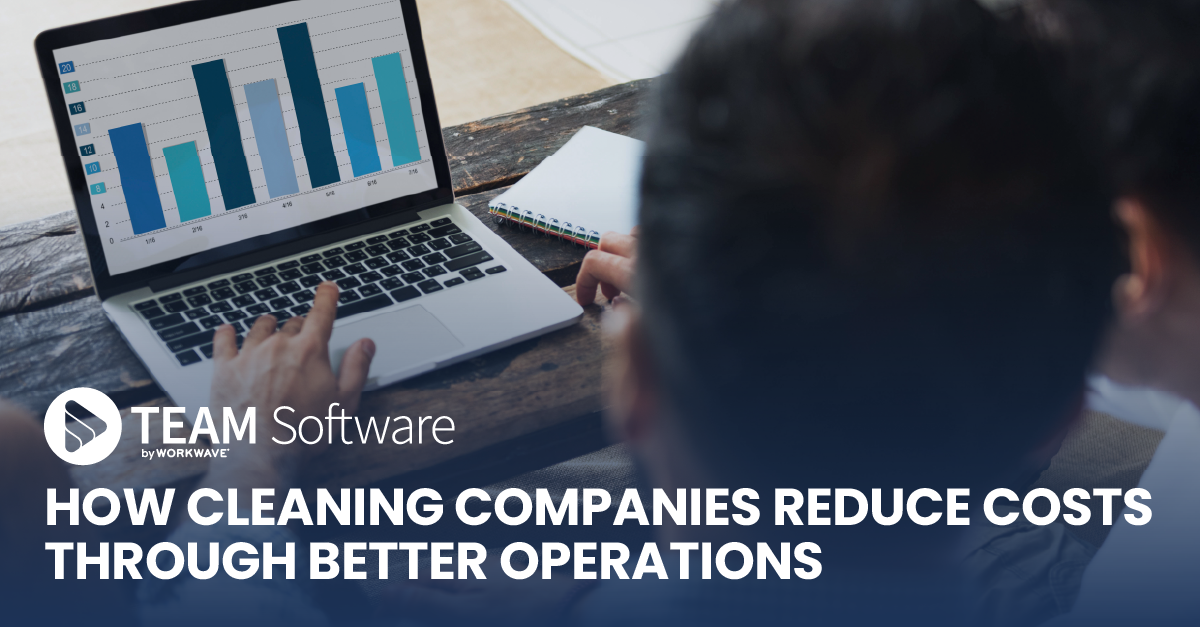Economic forecasts indicate challenges ahead for cleaning companies. While traditional cost-cutting may provide short-term relief, companies investing in operational efficiency can achieve sustainable resilience instead.
The Cost of Operational Inefficiency
Poor contract management and operational inefficiencies create significant resource drains where efficiency matters most. For cleaning companies managing multiple locations, these inefficiencies compound across every site, impacting profitability when margins are already thin.
Two Approaches to Economic Pressure
During uncertain times, cleaning companies face a fundamental choice: reduce expenses through traditional cost-cutting or invest in operational improvements.
Traditional Cost-Cutting:
- Reducing staff or hours
- Cutting supply budgets
- Eliminating training programs
- Postponing equipment maintenance
Technology Investment:
- Automating manual processes
- Improving operational visibility
- Streamlining administrative tasks
- Preventing operational errors
While immediate cost reduction can provide short-term relief, not addressing underlying operational inefficiencies contributes to ongoing expenses. Companies may even have to backtrack on cost cuts to rectify problems, adding expenses instead of removing them.
Documented Results
Companies with distributed workforces implementing comprehensive ERP technology report significant improvements:
- 90% reduction in payroll processing time
- Elimination of 40+ hours of weekly administrative work
- Prevention of fraudulent labor costs
- Improved job costing accuracy enabling strategic pricing decisions
Four Areas Where Technology Drives Advantage
- Process Automation: Integrated workforce management systems eliminate manual data entry errors while connecting timekeeping, scheduling and payroll processes. This provides real-time operational visibility across all locations.
- Financial Visibility: Advanced job costing allocates all costs – labor, taxes, insurance, supplies, materials—down to individual jobs. This granular visibility becomes crucial when every contract decision impacts profitability.
- Compliance Management: Built-in compliance tools protect against costly penalties and fines. This proves valuable for operations managing distributed workforces, where manual tracking errors carry significant financial risk.
- Quality Assurance: During economic downturns, customer retention becomes increasingly valuable. Technology-enabled quality programs ensure consistent service standards, protecting client relationships when new business becomes harder to secure.
Industry Outlook
Economic uncertainty is creating competitive differentiation within the cleaning industry. Companies maintaining manual processes and disconnected systems struggle to compete against those leveraging integrated technology for operational excellence.
TEAM Software has served the cleaning industry for more than 35 years, helping companies gain efficiency and profitability through changing market conditions.
Learn more about industry-specific ERP solutions for cleaning businesses.

